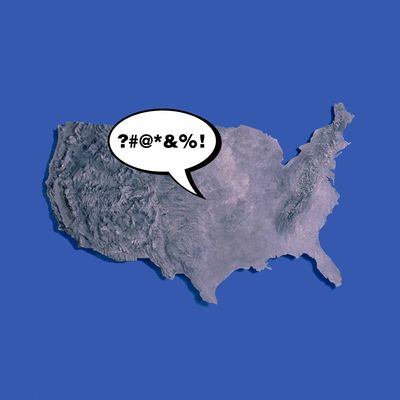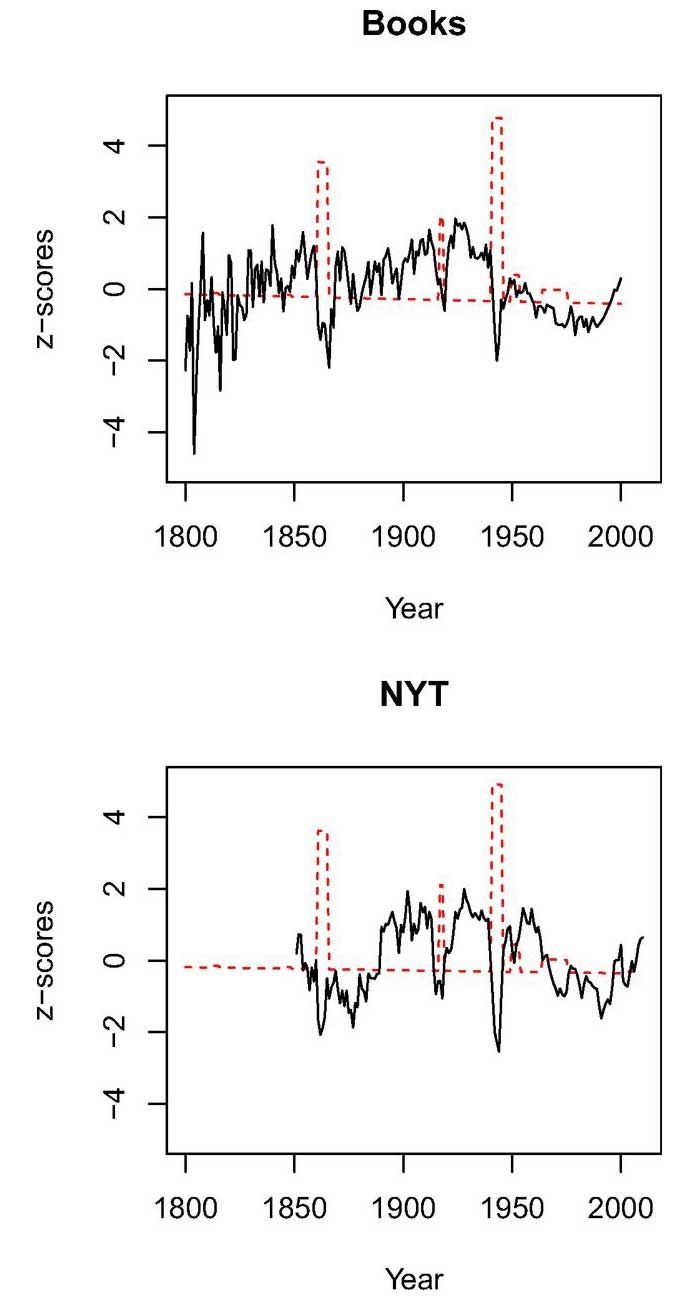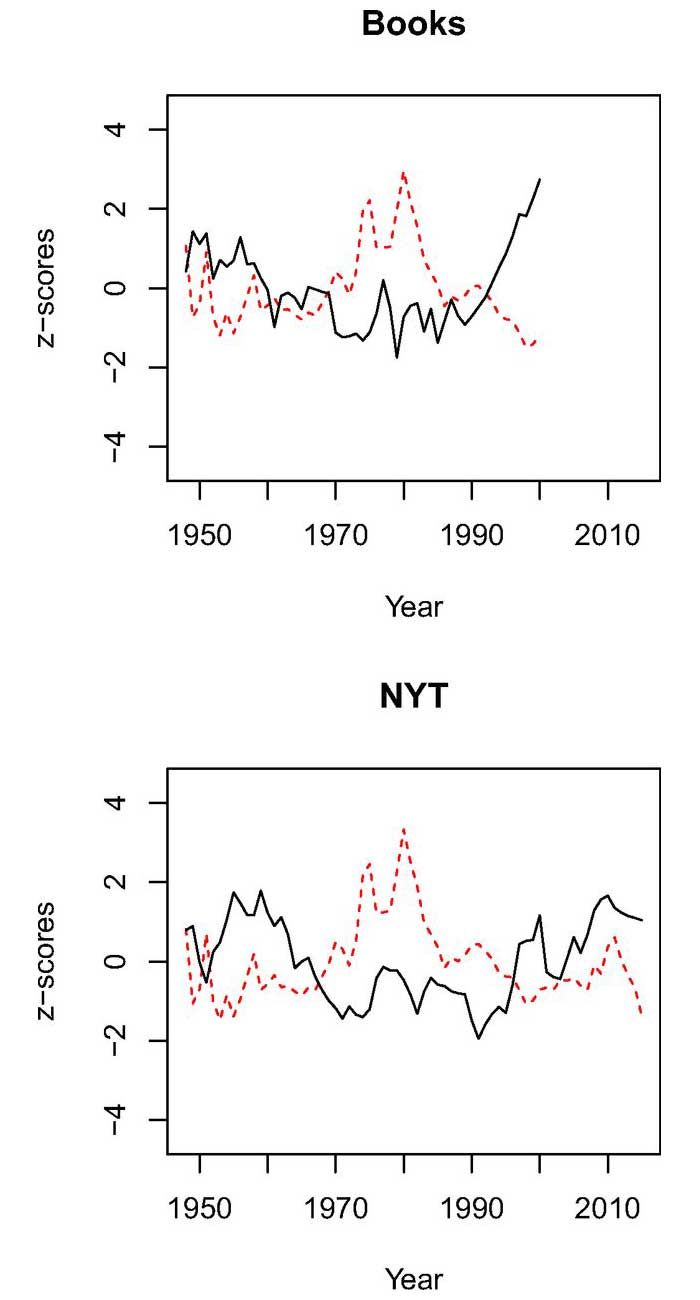
It’s intuitive that when a human being is going through a rough patch, they’re going to use words that connote how miserable they feel; when your candidate loses a presidential election, you’re not going to walk around declaring how sparkly and beautiful life is. The same, evidently, is true of a nation as a whole — or at least of the United States.
This is the fascinating, oddly comforting finding from a paper out this month in Proceedings of the National Academy of Sciences. A team led by Stanford data analyst Rumen Iliev found that big swings in the national experience — like from war to peace or prosperity to poverty — are reflected in the text words that are published in books and newspapers. And it goes back centuries.
To track the emotional content of words, the researchers used the Linguistic Inquiry and Word-Count dictionary (LIWC), which has 907 words and stems. Entries in the positive category include “relief,” “helpful,” and “grace,” while negative ones are “fear,” “lost,” “overwhelm,” and the like.
They then paired that with two text corpuses: Google’s digital-book archive, spanning 192 billion words in 1.3 million books from 1800 to 2000, and the New York Times’ archive of 14.9 million articles from 1851 to 2015. From there, they measured all those words against big historical trends — the most compelling of which concern war and money.
The below chart shows the results of measuring those happiness levels against military casualties, as tracked by the U.S. Department of Veterans Affairs. The more soldiers were dying on average a year (the dashed line), the more negative the word choice (the solid line). Note the contrasting spikes that mark the Civil War (1861–1865), World War I (1914–1918), and World War II (1939–1945).

Next up was economics. The researchers used Okun’s Misery Index, which combines unemployment and inflation rates to get a clearer picture of how much the economy is screwing the average person. The researchers found, true to form, that the higher the economic misery, the worse the mood in books and in the paper of record. In the below graph, the solid lines are the linguistic positivity and the dashed are the misery index.

There are some limits to this study, namely that given how ever-changing word usage is, it’s impossible to make apples-to-apples comparisons of the emotional weight of the all words over time. As Penn linguist Mark Liberman, who was not involved in the study, told the Times, a tool like the LIWC misses that shift in meaning — awesome used to mean “daunting,” and now it means “totally rad.” For a case study in what linguists call semantic shift, consider the divergent evolution of “like.” Still, Iliev and his colleagues argue that while “semantic drift might contribute noise” to their analysis, it’s not enough to create a systemic problem with their work.
What’s awesome (in both senses) about this kind of research is that it shows how much We’re All in This Together: If there’s one thing America has been shown to agree on, it’s how much everything is terrible.




